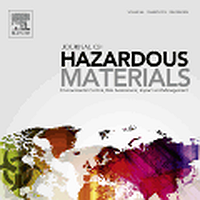Soil microorganisms play crucial roles in the fates of pollutants, and understanding the behaviour of these microorganisms is critical for the bioremediation of PCP-contaminated soil. However, shifts remain unclear in the community structure and Fe(III)-reducing and dechlorinating microorganisms during PCP transformation processes, especially during the stages from the lag to the dechlorination phase and from the dechlorination to the stationary phase. Here, a set of lab-scale experiments was performed to investigate the microbial community dynamics accompanying PCP transformation in paddy soil. 19 mu M of PCP was biotransformed completely in 10 days for all treatments. T-RFLP analysis of the microbial community confirmed that Veillonellaceae and Clostridium sensu stricto were the dominant groups during PCP transformation, and the structures of the microbial communities changed due to the degree of biotransformation and the addition of lactate and AQDS. However, similar temporal dynamics of the microbial communities were obtained among all treatments. Furthermore, as revealed by quantitative PCR, the dynamics of Fe(III)-reducing and dechlorinating microorganisms, including Geobacter sp., Shewanella sp., and Dehalobacter sp., were consistent with the transformation kinetics of PCP, suggesting the critical roles played by these microorganisms in PCP transformation. These findings are valuable for making predictions of and proposing methods for the microbial detoxification of residual organochlorine pesticides in paddy soil. (C) 2016 Elsevier B.V. All rights reserved.

Dynamics of the microbial community and Fe(III)-reducing and dechlorinating microorganisms in response to pentachlorophenol transformation in paddy soil
Review badges
0 pre-pub reviews
0 post-pub reviews

